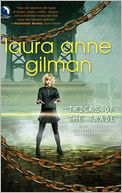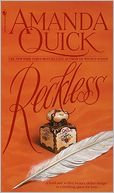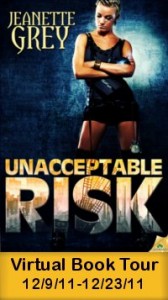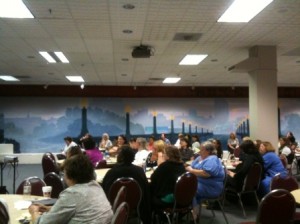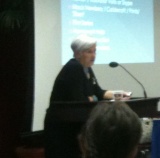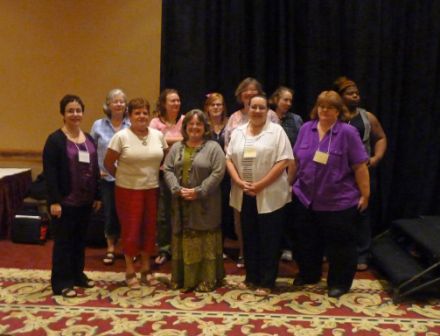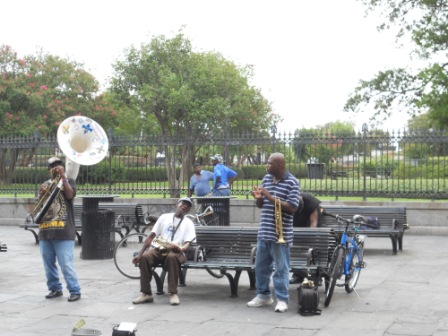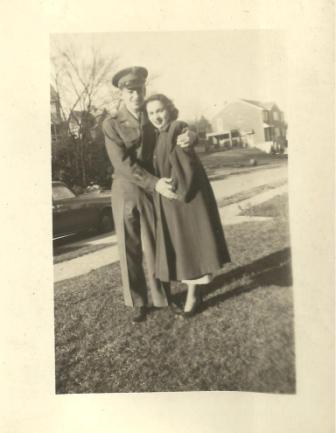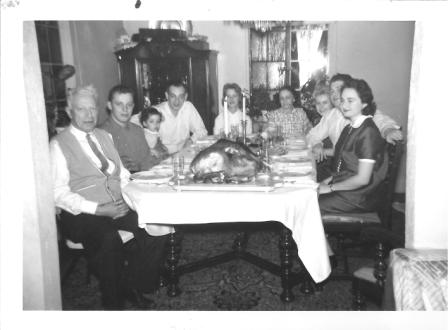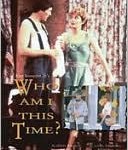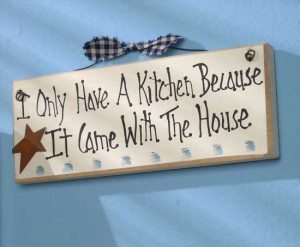 I plan to carry out an impossible mission in this post. Not the kind where the “Secretary will disavow all knowledge of my actions,” although there will be some “Secretaries” involved. So this mission will not involve either Peter Graves or Tom Cruise. Nor will there be any spies.
I plan to carry out an impossible mission in this post. Not the kind where the “Secretary will disavow all knowledge of my actions,” although there will be some “Secretaries” involved. So this mission will not involve either Peter Graves or Tom Cruise. Nor will there be any spies.
By the time you read this, I will either be flying between Atlanta and Dallas, or already in “The Big D” and in the midst of the madness that comprises the American Library Association Midwinter Conference. A madness that is only exceeded by the insanity of the American Library Association Annual Conference, which will be in hot, dry Anaheim California, in June. Look out, Mickey Mouse!
![]() ALA Midwinter originally came into being for the Association to conduct its business. And there are a LOT of committee meetings. But since everyone was there anyway, the vendors who sell to libraries also come to the conference to exhibit their latest and greatest. The publishers come to promote their new books. There are usually LOTS of Advance Reading Copies free for the taking. Stacks and stacks of them!
ALA Midwinter originally came into being for the Association to conduct its business. And there are a LOT of committee meetings. But since everyone was there anyway, the vendors who sell to libraries also come to the conference to exhibit their latest and greatest. The publishers come to promote their new books. There are usually LOTS of Advance Reading Copies free for the taking. Stacks and stacks of them!
About that impossible mission? Attempting to make my ALA Midwinter Schedule sound interesting. Please don’t stop reading now!
I said that ALA conducts a lot of its business during the Midwinter conference. I am proud to say that I am part of that business. This year, I am the Chair of the Association for Library Collections and Technical Services Affiliate Relations Committee. Whew, that’s a mouthful. It’s abbreviated as ALCTS ARC. You can imagine why.
![]() Being Chair of an ALCTS committee means that I go to the ALCTS Board meeting on Friday afternoon and Monday afternoon. This year, ALA is promoting the theme of “Transforming Libraries” and a big part of that theme is “Transforming Collections”. ALCTS, well, remember that word “Collections” in the name? We’re all over that “Collections” thing. So we’ll be talking about our role in ALA’s initiative.
Being Chair of an ALCTS committee means that I go to the ALCTS Board meeting on Friday afternoon and Monday afternoon. This year, ALA is promoting the theme of “Transforming Libraries” and a big part of that theme is “Transforming Collections”. ALCTS, well, remember that word “Collections” in the name? We’re all over that “Collections” thing. So we’ll be talking about our role in ALA’s initiative.
 The Affiliate Relations Committee is something different. We gather information about continuing education that happens all around the country, and distribute it to everyone. So that folks in California know what’s going on in Maryland and vice-versa. You might think that’s not all that relevant, but with webinars, location is not quite the factor it used to be. And if someone in Oregon knows of a good speaker on a hot topic, the speaker might very well be willing to travel to conduct a similar workshop. Networking is everything!
The Affiliate Relations Committee is something different. We gather information about continuing education that happens all around the country, and distribute it to everyone. So that folks in California know what’s going on in Maryland and vice-versa. You might think that’s not all that relevant, but with webinars, location is not quite the factor it used to be. And if someone in Oregon knows of a good speaker on a hot topic, the speaker might very well be willing to travel to conduct a similar workshop. Networking is everything!
(I’ll be doing two webinars for the Maryland Library Association, one on genre selection on Jan. 31 and one on Ebook Collections on Feb. 9. The webinars are from Maryland, but I’ll be in Atlanta!)
What else will I be doing in Dallas? Seeing colleagues I only see at conference. Going to sessions on topics that interest me, like ebooks and collection development.
And oh yes, I’ll be walking the floor. Not like that. The exhibit hall floor. A chunk of the publishers I regularly cover in Ebook Review Central will be at the Conference. Kristina from NetGalley will be there. And I want to visit all the print publishers and get on their lists to get review copies, too. There’s miles of walking in my future, but it will be so worth it.
I just have to restrain myself from bringing home too many ARCs. Those suckers are heavy.


